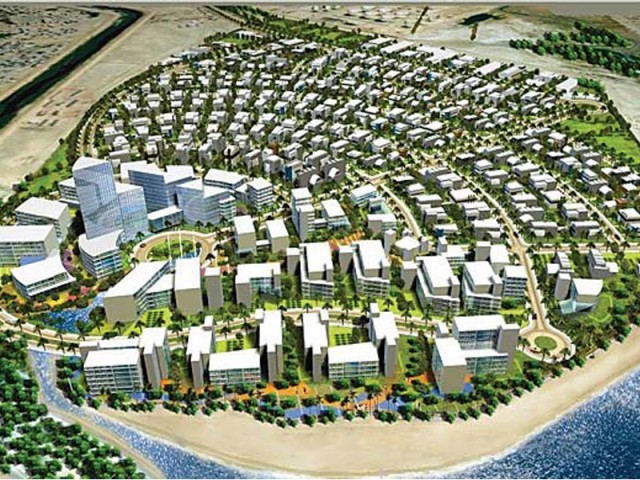aks18
SENIOR MEMBER

- Joined
- Aug 3, 2010
- Messages
- 2,768
- Reaction score
- -2

It turns out that cutting through red tape is tough even for a government-owned entity.
Industrialists in Pakistan frequently complain of the bureaucratic red tape that forces them to pay bribes for routine tasks and the extraordinarily poor infrastructure quality that raises their costs of doing business.
So when Zubair Habib, himself a member of a family that owns a large industrial conglomerate, was asked by the government to help set up the National Industrial Parks Development and Management Company (NIPDMC) a firm that would create enclaves that would be free from bureaucratic meddling and offer world-class infrastructure he leapt at the chance. Little did he realise how much frustration he would be taking upon himself.
NIPDMC was created in 2006, as an initiative of then-Industries Minister Jahangir Tareen, himself an industrialist and the owner of JDW Sugar, the largest sugar mill in the country. The plan involved utilising some land owned by the Pakistan Industrial Development Corporation (another state-owned entity) in Karachi and building an industrial park that would have state-of-the-art infrastructure.
The company was envisioned as a public-private hybrid. While it is a subsidiary of the PIDC, about 75% of its board members are from the private sector. Its first chairman was Shaukat Tarin, a veteran banker and future finance minister of Pakistan.
In a bid to inculcate market discipline into its capital structure, NIPDMC would be required to raise capital from private investors, for which the company issued a Rs2 billion sukuk (Islamic bond), underwritten by Emirates Global Islamic Bank and covered by a sovereign guarantee.
Yet almost at the outset, the newly-created company began to face challenges.
The land, for instance, turned out to be disputed. The Sindh government claimed that the land had been offered at concessional rates and demanded to be paid the full market price: Rs650 million. This caused the NIPDMCs plans to come to a complete standstill: if they did not own the land, they could not do anything else.
In August 2006, an agreement was reached with the Sindh government to drop its claims to the land in exchange for a share in NIPDMCs future profits. But that was not the end of the land saga. It would take almost three years before the land title was finally transferred to NIPDMC in June 2009.
Even once they got the land, they had to persuade the Coast Guard to abandon a watch-post that they had put up on the land.
Up until that time, the NIPDMC management had been working with Sindh government officials to expedite the process and planning the industrial estates that they would create.
NIPDMC commissioned Jurong International a Singapore-based firm to create the design and for NESPAK, a state-owned engineering firm, to do the engineering design. By 2009, the power crisis had become acute and the company had decided to offer a dedicated power supply to its customers.
Yet even that turned out to be quite a struggle. It took several months of effort to get the Sui Southern Gas Company (SSGC) to lay a four-kilometre pipeline to the site of the estate in Karachi (paid for by NIPDMC). The company also had to arrange for a water supply to the estate.
But the NIPDMC management did not want to leave anything to chance. They signed an agreement guaranteeing a supply of 14.7 million cubic feet per day of gas to the estate, most of which will be used to fuel the 48-megawatt captive power plant.
Even still, given the chronic gas shortage in the country, the company has factored in at least a three-month disruption in its gas supply into its pricing of the electricity it will sell to its customers.
And then came the Civil Aviation Authority, which declared that the buildings on the estate could not go above a certain height since it was part of an air corridor. It took negotiations with the CAA management to convince them to allow NIPDMC clients to build up.
In essence, NIPDMC has been doing the run-around on behalf of its clients, and before they launch the park (scheduled to be finished by December 2012.)
Clients certainly seem happy.
This was the cleanest [bribe-free] interaction I have ever had in Pakistan, which is very unusual, said Nazim Haji, CEO of Aluplas, an aluminium and plastic cone manufacturer that is looking to expand and has bought a plot at NIPDMCs park in Karachi.
National Industrial Parks: Building Singapore in Pakistan – The Express Tribune
Seems Some thing is Good Going On
 Hope For Best
Hope For Best 
